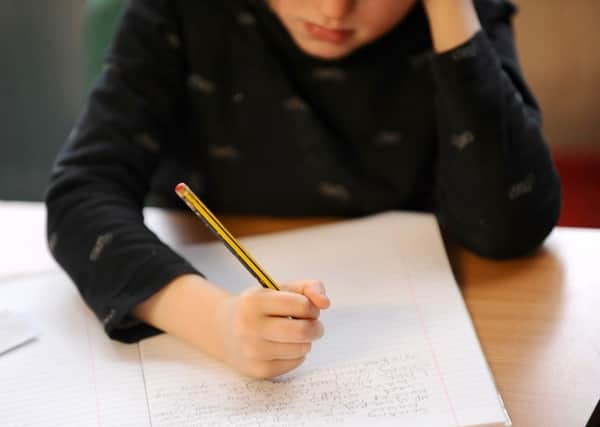Poorer pupils '˜facing cocktail of disadvantage', warns Nick Clegg


The Lib Dem MP for Sheffield Hallam is the chair of a cross-party commission looking at inequality in education for the independent think tank Social Market Foundation.
His comments come one week after South Yorkshire MPs demanded the Government takes action to tackle the ‘postcode lottery’ which sees students in Sheffield doing worse at school than their counterparts in London.
Advertisement
Hide AdAdvertisement
Hide AdThe research findings from the SMF commission, were analysed by Education Datalab.
It found poorer pupils in England and Wales are more likely to make less progress when they are affected by four factors.
These include having a teacher who does not have a formal qualification, a less experienced teacher, a teacher without a degree in the relevant subject and when teacher turnover is high.
Mr Clegg said: “Pupils from disadvantaged backgrounds do less well on average at school than those from more privileged backgrounds.
“This inequality in outcomes is substantial and persistent.
Advertisement
Hide AdAdvertisement
Hide Ad“This new research suggests that poor pupils are facing a cocktail of disadvantage – they’re more likely to have unqualified teachers, non-specialist teachers, less experienced teachers, and to have a high turnover of teachers.”
Research found that primary schools with affluent intakes have 12 per cent of teachers with more than 10 years of experience, whilst the poorest have just seven per cent.
Among secondary schools these figures are 12 per cent and eight per cent respectively.
Findings also show that deprived schools are much more likely to have teachers with inappropriate qualifications and will also experience higher levels of teacher turnover.
Advertisement
Hide AdAdvertisement
Hide AdThese include finding new ways to encourage experienced teachers to teach in high deprivation schools, possibly using ‘considerable pay incentives’ to achieve this.
And improving support for teachers in schools with proportions of low income pupils – meaning they would be less likely to leave, and over time increasing levels of experienced staff.
Mr Clegg added: “Many new teachers, to their credit, choose to teach in schools in poorer areas.
“Improving their pay and the support they receive could mean they are more likely to stay in those schools as they become more experienced and effective.”
Advertisement
Hide AdAdvertisement
Hide AdIn response to the report a Department for Education spokesman said: “High quality teaching is the most important element of a world class education system that closes the door on disadvantage.
“Thanks to our reforms the attainment gap between disadvantaged pupils and their classmates has narrowed since 2011 but we refuse to be complacent.
“That’s why, as a key part of our plan for educational excellence everywhere, we’re investing £1.3bn over the course of the parliament to attract new teachers into the profession - with a particular focus on STEM subjects to raise educational standards for young people.
“We have more teachers in our classrooms than ever before, and they are better qualified than ever - a record 96.6% of teachers in state-funded schools now have a degree or higher qualification, and over 95% of teachers in state-funded schools hold qualified teacher status.
Advertisement
Hide AdAdvertisement
Hide Ad“We have also recently launched the National Teaching Service which, by 2020, will have deployed 1,500 high-performing teachers and middle leaders in underperforming schools in areas of the country that struggle to attract, recruit and retain high quality teachers.”
Rebecca Allen, director of Education Datalab, and a commission member, said teacher recruitment and retention has “become much more difficult”.
She added: “Given that more disadvantaged schools were already doing worse than more advantaged schools in recruiting to long-standing shortage subjects such as physics and maths, it seems most likely that more widespread shortages will disproportionately affect them.”
The report proposes a number of policy options that could tackle the issue of inequality.